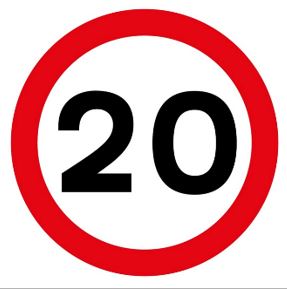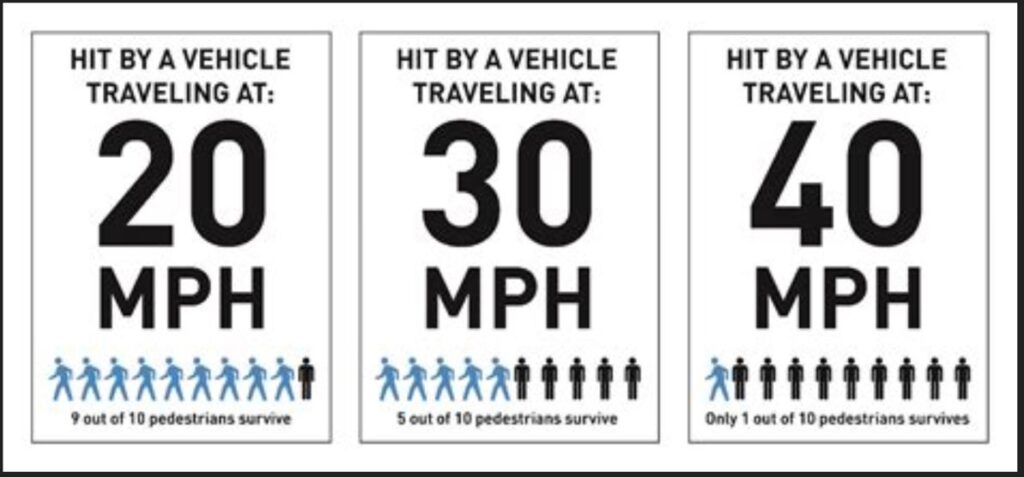
We have had two cats and a dog killed on the roads. The pain is indescribable as I know I don’t need to tell you. We joke that our Russian Blue, Olga, is perfectly camouflaged for the road but its gallows humour, designed to help us cope with the possibility that it might happen to her too.
250 000 of our 10 million cats and 4000 of our 10 million dogs are involved in road accidents every year in Britain. 25% of these are fatal for cats and 20% for dogs. That’s a lot of pet deaths and bereaved keepers. Meanwhile, traffic produces 21% of Britain’s CO2 and according to Government data, air pollution from traffic is responsible for at least 5000 deaths annually, twice as many as road deaths. Roads divide our communities, stopping children playing and people walking and cycling. Of course, our pets are also damaged by air pollution and have their freedom and social interaction curtailed by roads.

Cats: the cats matter website https://www.catsmatter.org/about, is a useful, compassionate, humane and practical resource to help cat keepers protect their cats from roads.
Cats matter gives advice as to what to do if you injure a cat, how to effectively help and how to report. The resource emphasises that vets won’t charge for helping an injured cat. Cats matter also give advice as to how to keep your outdoor cat safe. Many more accidents happen after dark. The resource suggests ways to manage your cats routine so that they are indoors at night.
1 in 10 drivers leave cat to die alone. There is no obligation for the authorities to scan dead cats and notify the keeper. However, a private member’s bill introducing compulsory scanning championed by MP James Daly (the Pets (Microchips) Bill) between 2019-21 and is now in its 2nd reading in the house of commons. It follows a campaign called Tuk’s Law, named after a rescue dog that was put down aged just 16 months after being rehomed, and a petition that drew more than 100,000 signatures. Similarly, Gizmo’s legacy are fighting for the scanning of dead cats microchip to be compulsory.
Now all cats have to be microchipped there are fewer reasons for cat owners to not know what has happened to their pets.
Dogs: A recent (2018) VetCompass™ study of almost 200,000 dogs between 2009 and 2014 revealed useful insights into road traffic accidents involving dogs in Britain
The paper, published in the Journal of Veterinary Emergency and Critical Care found that 4 in every 1000 dogs are involved in an road accidents. Younger and male dogs are at higher risk, the average age of dogs affected being 2 and a half. Male dogs had 1.4 times the risk of females. Over one fifth of all dogs died from their reported RTA event.
Unsurprisingly, nighttime presents a higher risk due to low visibility and also coincides with peak traffic density at these times. Urban areas with frequent intersections and heavy traffic have higher rates of dog car accidents. In 2020, about 70% of the 10,626 fatalities in intersection crashes occurred in urban places compared to just 28% in rural areas. However, some rural areas may have higher speed limits; hence, car accidents involving animals, especially dogs, can be more severe.
A 20mph speed limit is a no brainer:

According to the Highway Code, in the distance a 20mph car can stop, a 30mph car will still be doing 24mph.
20mph was introduced on most residential roads in Wales in September 2023. Despite opposition, 80% of those asked supported the reduction. Although 20mph is common in many European cities and elsewhere in areas of Britain, Wales is one of the first countries in the world to introduce a default 20 mph speed limit in built up areas.
Its too early to say what the impact of RTA’s affecting people will be, accident rates are already falling due to other factors making it more difficult to make meaningful comparisons. So far, there has also been widespread non compliance, although the penalty for breaking the speed limit is the same as breaking any speed limit. However, the roads that were designated 20mph have experienced a reduction in traffic after implementation. Early monitoring reports show that in these areas, more children are walking, cycling, and scooting to school. Data from WOW – the walk to school challenge from Living Streets – reported that schools in 20mph areas have seen a greater increase in active travel journeys (49% to 74%), compared to schools predominantly in 30mph areas (49% to 67%). Children also reported feeling much safer on their journey to and from school each day.
Spain reduced the speed limit to 30km/h (18.64mph) on the majority of its roads in 2019 and therefore have more data. Since then, there have been 20% fewer urban road deaths, with fatalities reduced by 34% for cyclists and 24% for pedestrians.
Less traffic, less accidents, less air pollution, less CO2 and more walking and cycling. Saves a lot of money for the nhs
The jury is out on whether 20mph will reduce fuel use. but it will reduce traffic and less traffic equals less fuel consumption. A 20 mph default speed limit will reduce air pollution from car exhausts, including particulates. It’s possible NOx and CO might increase slightly but it’s the particulates that do most damage. Overall, a 20 mph speed limit leads to improved air quality in urban areas.
The World Health Organisation states that the most effective way to improve pedestrian safety is to reduce the speed of vehicles.
Enforced, a default 20 mph limit will reduce accidents and injury – not just for people but also for cats and dogs.
HARRIS, G. L., BRODBELT, D., CHURCH, D., HUMM, K., MCGREEVY, P. D., THOMSON, P. C. & O’NEILL, D. 2018. Epidemiology, clinical management, and outcomes of dogs involved in road traffic accidents in the United Kingdom (2009–2014). Journal of Veterinary Emergency and Critical Care, 2 (2); 140-148.
https://www.gov.wales/introducing-20mph-speed-limits-frequently-asked-questions#74857How do slower speeds increase safety?
https://www.roadxs.com/insights/is-a-20-mile-per-hour-speed-limit-annoying-or-necessary
https://www.sciencefocus.com/comment/20mph-speed-limits-save-lives
